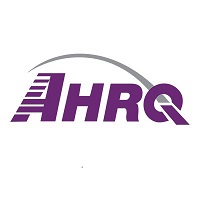 By Edwin Lomotan, M.D., James Swiger, M.B.E., and Dean F. Sittig, Ph.D., AHRQ
By Edwin Lomotan, M.D., James Swiger, M.B.E., and Dean F. Sittig, Ph.D., AHRQ
LinkedIn: Edwin Lomotan
LinkedIn: James L. Swiger
LinkedIn: Dean Sittig
LinkedIn: Agency for Healthcare Research and Quality
Clinical decision support (CDS) has emerged as an important tool to improve the quality and safety of patient care. Not coincidentally, CDS has been a consistent focal point for AHRQ’s Digital Healthcare Research Program.
CDS harnesses the use of technology in healthcare decision-making to provide the right information to the right people at the right times in the right format, and it’s built on the understanding that the capacity to collect, transmit, and interpret enormous amounts of data can get the most current science into the hands of those who need it.
AHRQ’s Digital Healthcare Research Program, which this year commemorates its 20th anniversary, has supported CDS research, implementation, and demonstration projects throughout its history to achieve those very goals. Done well, CDS integrates seamlessly into the clinical workflow, helping doctors, nurses, and other care team members recommend the latest evidence-based medicine to their patients. However, when implemented poorly or without enough input from users, it can interrupt workflow and lead to potentially disastrous results.
AHRQ has been thinking about CDS for decades. In the early 2000s, AHRQ funded two demonstration projects—GLIDES (GuideLines Into DEcision Support) (PDF, 2.6 MB), and the CDS Consortium—that recommended how to translate clinical guidelines and other knowledge into formats that can be used across settings, institutions, and electronic health record platforms. Both projects, along with research that led to the Ten Commandments for Effective Clinical Decision Support, created a foundation for the next phase of CDS research: making CDS more shareable, standards-based, and publicly available.
In 2016, AHRQ launched CDS Connect, a web-based platform for authoring, sharing, and re-using CDS so healthcare systems and developers could build upon what has already been developed. Among the notable projects highlighted by CDS Connect is an open source, freely available and modifiable EHR dashboard that helps clinicians work with patients to manage chronic pain. A recent AHRQ Challenge Competition asked experts for new ideas on how to further advance the platform as a public resource. Innovations suggested by competitors have prompted AHRQ to issue a Request for Information to solicit potential collaborators for a new CDS Connect sustainment model.
AHRQ’s current research explores how CDS tools can be augmented, including how machine learning will affect CDS. AHRQ-funded researchers are examining how CDS, paired with machine learning, can improve emergency care at triage, mitigate emergency department overcrowding, and standardize treatments for multiple sclerosis.
As with other innovations, AHRQ’s Digital Healthcare Research Program remains committed to the ideal that new projects should make healthcare safer, of higher quality, and patient-centered. In particular, AHRQ is advancing patient-centered CDS, or PC-CDS, which incorporates findings from patient-centered outcomes research and facilitates patients’ participation in health-related decisions.
Among the Digital Healthcare Research Program’s major activities today is supporting the CDS Innovation Collaborative (CDSiC). In consultation with patients, developers, clinicians, and others, the collaborative is studying how patient and caregiver perspectives can be incorporated into artificial intelligence (AI).
This research has identified new policies, processes, and technologies that must align among healthcare systems, payers, and third-party companies. Care must be taken to ensure that CDS, whether based on AI or conventional rule-based logic, addresses the needs of both patients and clinicians. Once that occurs, we should begin realizing the technology’s long-term positive impact.
Recently, AHRQ released a Notice of Intent signaling the agency’s intent to fund new research to explore patient-centered clinical decision support. This research will provide important insights into how to involve patients, families, and caregivers as meaningful partners in the development of CDS.
These and other investments are emblematic of AHRQ’s commitment to advance the field and achieve the agency’s priorities of a healthcare system that is less fragmented and puts patients first. The future is bright. AHRQ will continue to support efforts to advance CDS and span the “last mile” challenge of getting the most current science into the hands of those who need it.
This article was originally published on AHRQ Views Blog and is republished here with permission.
